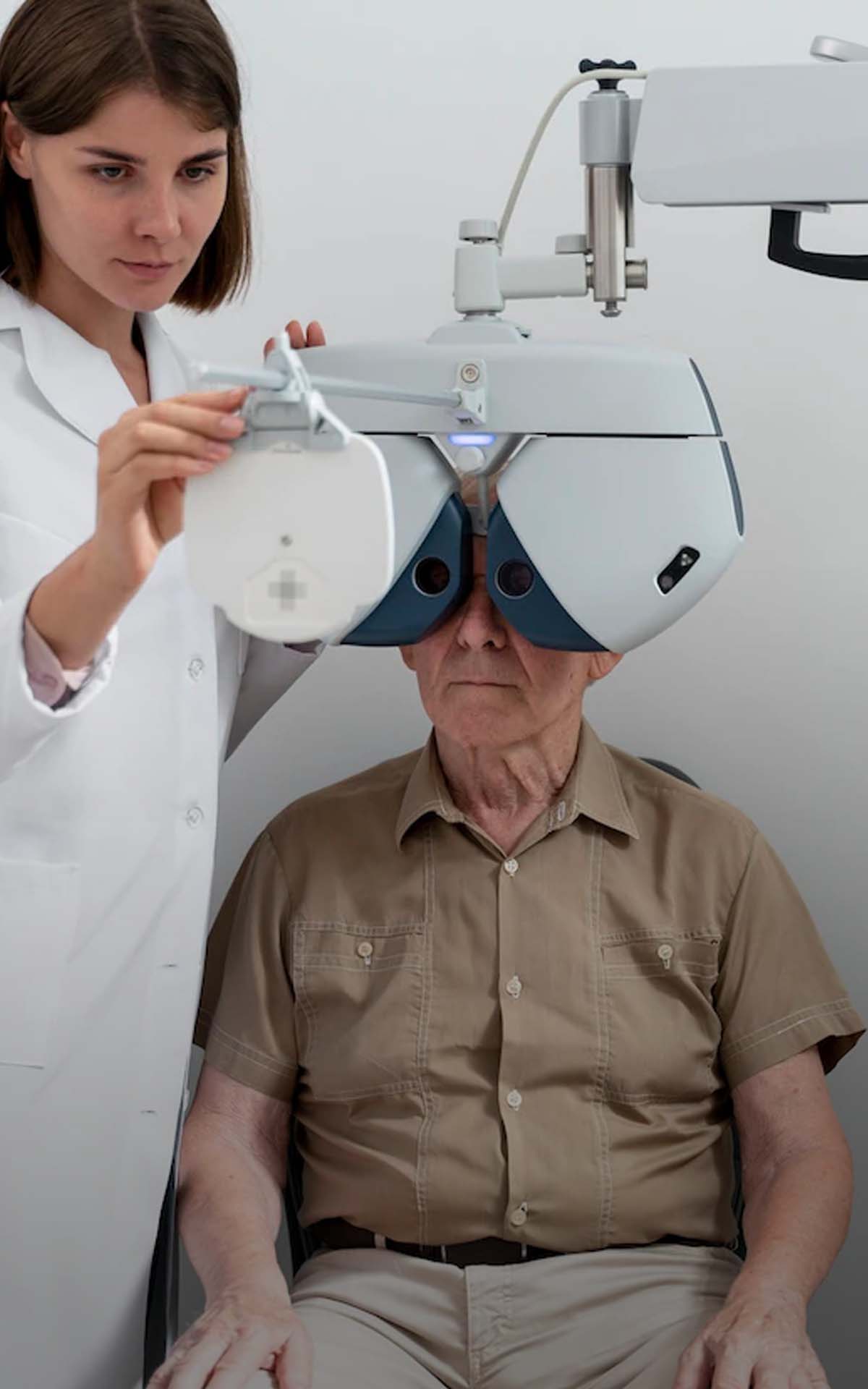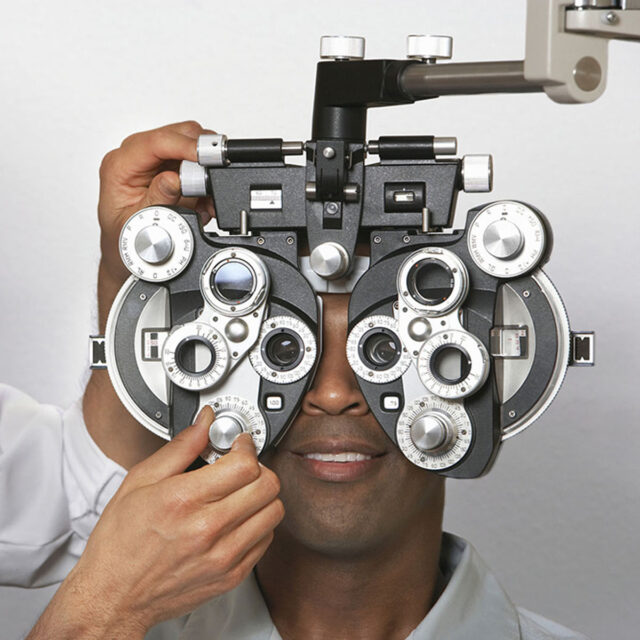Laser eye surgery has brought about a welcome revolution in ophthalmic treatment. It is now a routine treatment for moderate cases of three of the main refractive errors: myopia (nearsightedness), farsightedness (hyperopia), and astigmatism. Laser eye surgery can also treat vision problems that occur from many eye diseases, including glaucoma, diabetic retinopathy, and disease of the retina.
This means that laser eye surgeries have given much better vision to a great many people. Improving and evolving technology also mean that the range of conditions and the number of people it can help continues to grow.
If you have been told you may be a suitable candidate for laser eye surgery in Dubai, you will no doubt be feeling a mixture of optimism and excitement that your vision problems will likely be solved, along with some trepidation over what the procedure may involve. Like many things in life, preparation is the key to success. These are the steps you need to take for your procedure to go as smoothly as possible and to get the best possible results.
1. Choose the right surgeon
There are three main considerations for choosing a laser eye surgeon:
A. Qualifications and experience
You no doubt want your eyesight to be in very safe hands. Therefore, it is important to always check the qualifications and expertise of the doctor who will perform the surgery. They may have particular areas of knowledge, such as LASIK treatment in Dubai.
A good eye clinic will typically display information on their website about their doctors’ medical qualifications, professional registrations, and the experience they have gained as a practicing doctor.
Also, look for information about when and how they have continued to update their professional knowledge and the training they have undergone in the most up-to-date procedures. Are they also using the most modern equipment? Laser eye surgery is an area of medicine that is constantly evolving to be even safer and more effective; you want to be sure you are accessing the best possible care and treatment available.
B. Reputation
Finding many happy and satisfied patients is the best route to finding the best laser eye surgeon in your area. Talk to colleagues, friends and family who’ve had the procedure and get their recommendations, read plenty of online reviews, and check local forums, too. Look for the names of those surgeons who seem to consistently offer great care.
C. Convenience
While laser eye surgery is a quick procedure, you are unlikely to want to travel far to get home afterwards, so it makes sense to pick a surgeon fairly close to home.
2. Be sure it’s the right time
Laser eye surgery offers optimal results when the surgery is performed on the right person at the right time. Is this the right time for you?
Good health
You need to be in good general health and your eyes need to be in their best possible health, too. This will mean that you are more likely to heal quickly post-surgery and get an excellent outcome for your vision. Your surgeon will want to know your full medical history as well as your present health levels so they can check that this is the most suitable time for surgery. If you are pregnant or breastfeeding, for example, or have an eye injury, laser eye surgery should be postponed.
Stable vision
Your vision also needs to be stable. Young people, in particular, can experience more rapid and more frequent changes to their prescription. This is one of the reasons why laser eye surgery is not recommended for under 18s or until visual maturity has been reached. Whatever your age, however, it is essential to wait until you have gone at least 12 months without a prescription change.
3. Learn the risks and potential side effects
Laser eye surgery is quick, comfortable and convenient. While the risks are very low, there can be some side effects and, much more rarely, there are potential complications.
- Halos, starbursts, glare or double vision after surgery can happen to a small number of patients, particularly in low light. This may be severe enough to affect everyday activities like using the computer and driving.
- Problems with dry eyes can worsen post-surgery.
- Most rarely, problems with the location and amount of tissue removed by the surgery can cause more serious issues. For example, uneven correction may cause astigmatism. This is why it is important to go to a reputable, highly qualified and experienced surgeon.
- There are other small risks, including infection and the need for retreatment.
You should have a thorough discussion with your surgeon about both the benefits and the risks that apply in your individual case before you undergo the procedure.
4. Plan for the recovery period
For the best results, it is important to rest and allow your eyes to heal under the best possible circumstances. Therefore, it pays to plan for your recovery period properly.
This is what you should expect (Depending on the type of Laser Treatment done to your eyes):
- You might need to take painkillers to alleviate discomfort for a day or two. Otherwise, you would expect to feel some discomfort, a burning feeling or itchiness. You will also be given some eye drops to aid healing.
- Your eyes may water and your vision could be blurry for a short while. Your eyes may temporarily be more sensitive to light.
- You should plan on taking a few days off from both work and driving. It is important to rest your eyes completely and avoid screen use.
- You will need to visit your eye surgeon for a post-operative check within 24-48 hours of the procedure. There will be regular visits scheduled for the months after that, too.
- You should avoid putting on makeup and lotions around the eye area on the day of the laser treatment, and for a couple of weeks to minimize the risk of infection.
- You should not participate in contact sports for a month post-surgery.
5. Make last-minute preparations
For your surgery to go well, you need to make these preparations:
- Stop wearing contact lenses and switch to glasses as and when directed by your doctor (the period for this will depend on the type of lenses you use). The reason for this is that contact lenses can alter the shape of your corneas slightly and they need to be in their natural state for optimal laser eye surgery results.
- Stop wearing makeup and lotions for several days before surgery to ensure there are no residues that may introduce a greater infection risk.
- Arrange for a friend or family member to help to get safely to and from your surgery appointment.
- Book time off from work. Before you finish your last day before surgery, send any urgent emails or complete vital tasks since you should not be using a computer screen for a few days.
- Download some music or podcasts to listen to after surgery as your eyes should be resting.
Following these five steps should ensure that you have a safe, comfortable laser eye surgery procedure followed by a good recovery and excellent improvement to your vision.
If you’d like to know more about how your procedure will run or are interested in discussing whether the procedure would benefit you, contact us at Gulf Family Clinic for further information.








